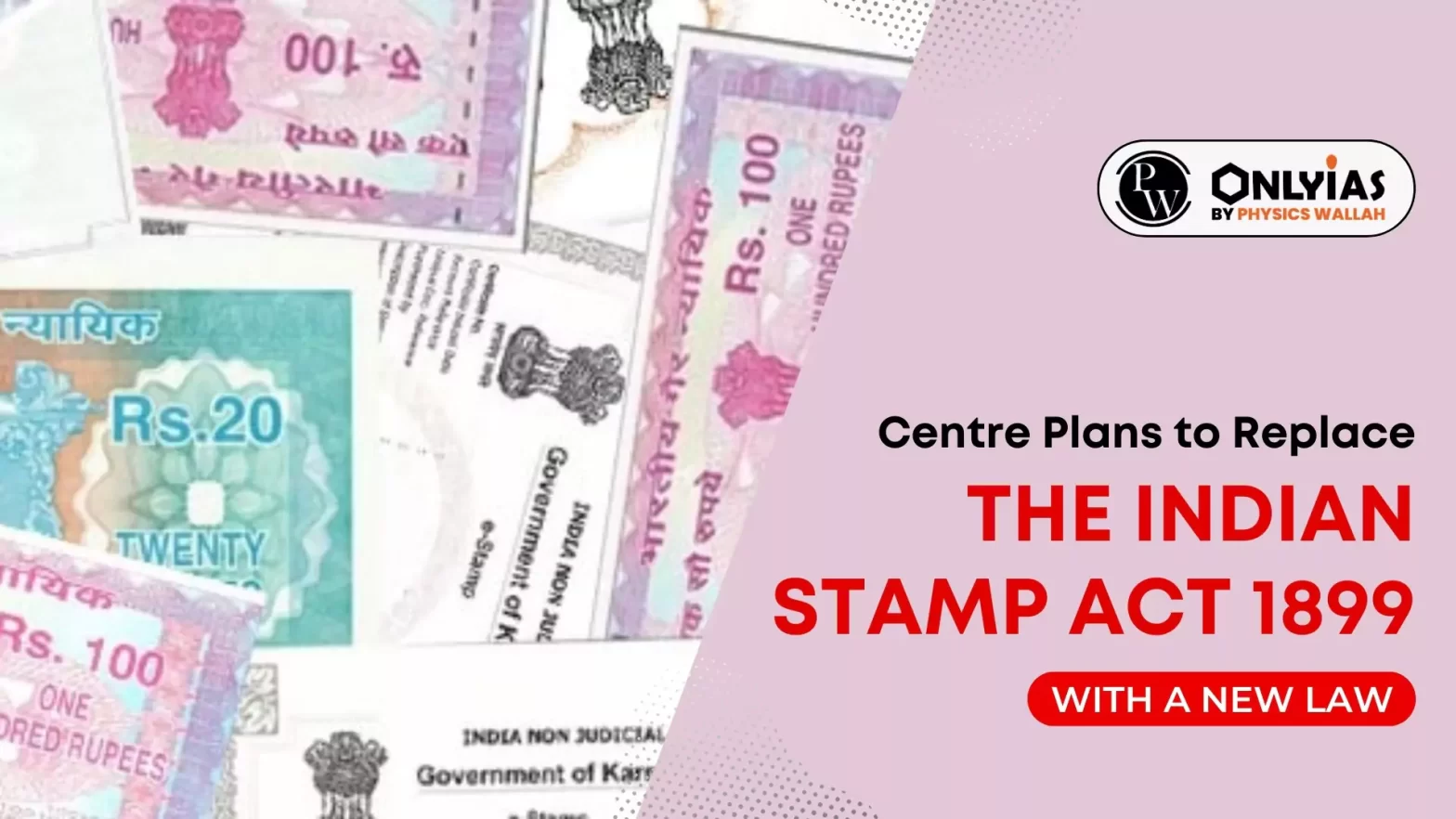Context:
This article is based on the news “Why Centre plans to replace the Indian Stamp Act, 1899 with a new law” which was published in the Indian Express. The Indian government is proposing to take actions to invalidate the old Indian stamp act and introduce new law for stamp duty.
What is Stamp Duty?
- It is essentially a government tax, which is levied to register documents, like an agreement or transaction paper between two or more parties, with the registrar.
- The specified amount is usually fixed based on the type of document.
- Sometimes, it is a percentage of the value mentioned in the agreement.
- Types of Document: Stamp duty can be imposed on various documents like bills of exchange, cheques, promissory notes, bills of lading, letters of credit, insurance policies, share transfers, debentures, proxies, and receipts.
- Legal Validity: Documents with paid stamp duties are considered valid evidence in a court of law.
- Government Authority and Revenue Allocation:
- The Central government imposes stamp duties but the money collected goes to the respective states.
- This is done according to Article 268 of the Constitution, allowing states to appropriate these funds within their territories.
What is the Indian Stamp Act 1899?
The Indian Stamp Act, 1899 (2 of 1899) is a fiscal statute. It makes laws related to taxation by using stamps on documents that record transactions.
Stamp
- A “stamp” is defined as any mark, seal, or endorsement authorised by the State Government.
- This includes adhesive and impressed stamps used for the duty under this Act.
|
- Definition of Instrument: According to Section 2 of the Act, an instrument includes any document that creates, transfers, limits, extends, extinguishes, or records any right or liability.
- Section 3 of the Indian Stamp Act 1899 specifies that certain instruments or documents must have a stamp duty, as mentioned in Schedule 1 of the Act.
- Examples: Instruments like bills of exchange or promissory notes fall under documents requiring a stamp duty.
Govt Introduces Draft Indian Stamp Bill 2023
- Proposed Repeal of Indian Stamp Act 1899: The Centre has proposed repealing the Indian Stamp Act 1899 and bringing in a new law for the stamp duty regime in the country.
- Indian Stamp Bill 2023: On January 17, the Ministry of Finance released the draft for public review.
Reasons for Proposing the Indian Stamp Bill 2023
- Outdated Provisions: The Ministry of Finance states that certain parts of the Indian Stamp Act 1899 are no longer useful or effective.
- Digital E-stamping Absent: The existing law doesn’t include rules for digital e-stamping, a missing feature.
- Inconsistent State Laws: There is a problem with the current situation as not all Indian states have the same rules for stamp duties.
- Coverage Discrepancy: While the 1899 Act applied to 30 states and Union Territories, six states had separate stamp acts and rules.
Major Features of Draft Indian Stamp Bill 2023
- The new draft Bill includes rules for digital e-stamping. As per Section 2 (18) of the Bill, the term “Electronic stamp” or “e-stamp” refers to a digitally created mark indicating the payment of stamp duty through electronic methods or other means. The Bill incorporates provisions for digital signatures.
- A digital or electronic signature is how a subscriber can verify an electronic record through an electronic process.
- According to Section 2 (17) of the Bill, The words “executed” and “execution” in the bill align with “signed” and “signature”.
- As per the IT Act, 2000, it includes electronic records and signatures too.
| The IT Act defines “electronic records” as data or information stored, sent, or received electronically. |
- The Draft Bill Suggests Increasing Penalties.
-
- The maximum penalty may go up from Rs 5,000 to Rs 25,000.
- There is a provision of a Rs 1000 fine for repeated offences.
Also Read: Union Budget 2024-25: Live Updates
![]() 31 Jan 2024
31 Jan 2024
